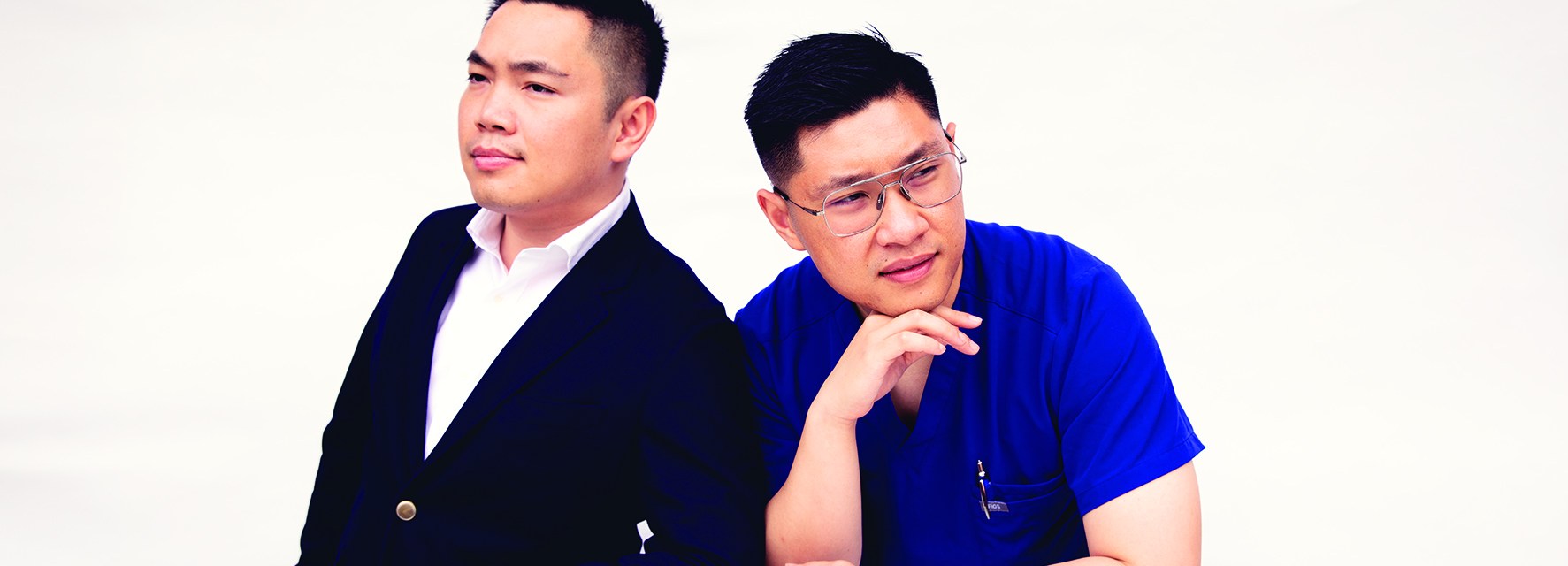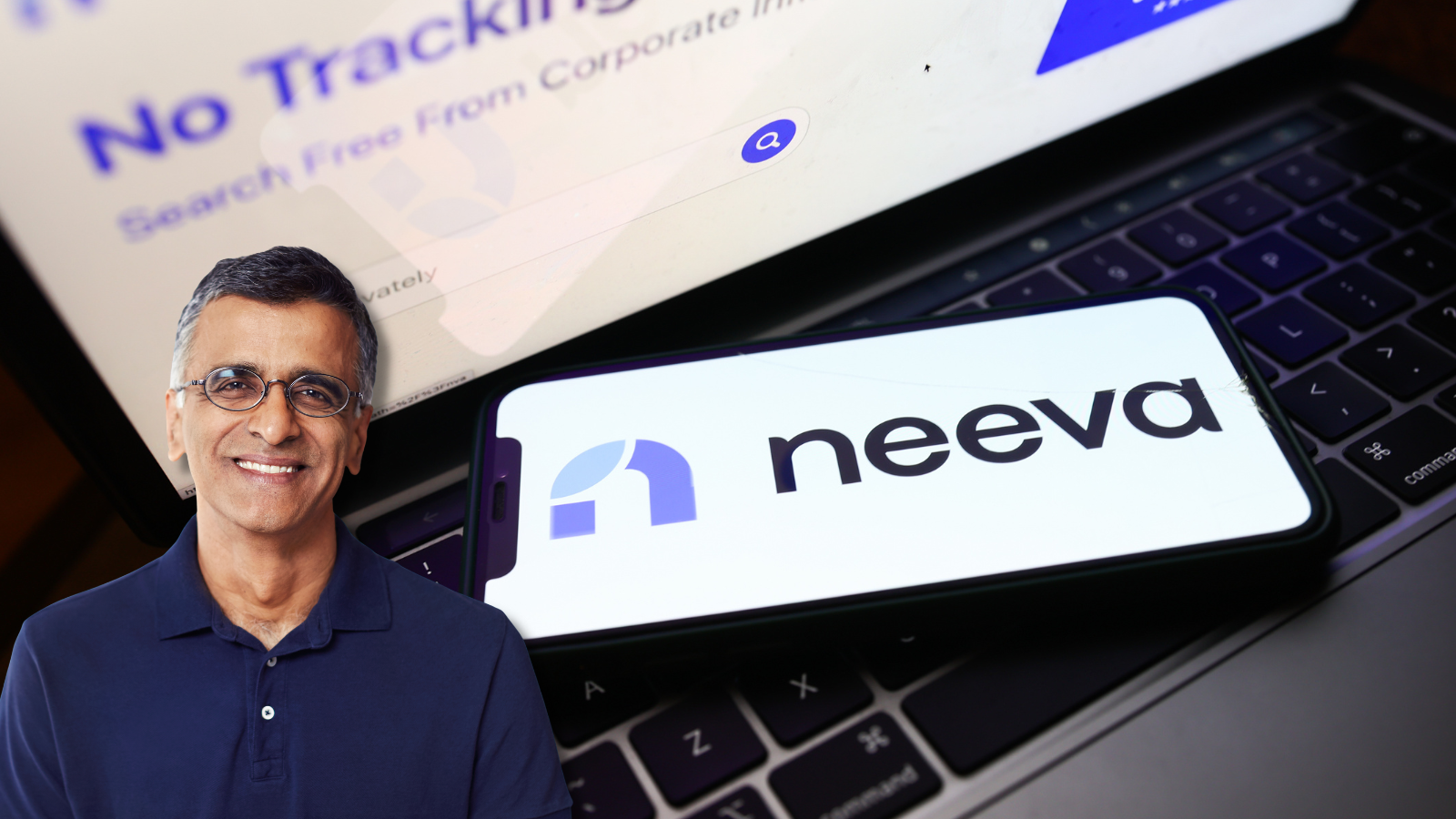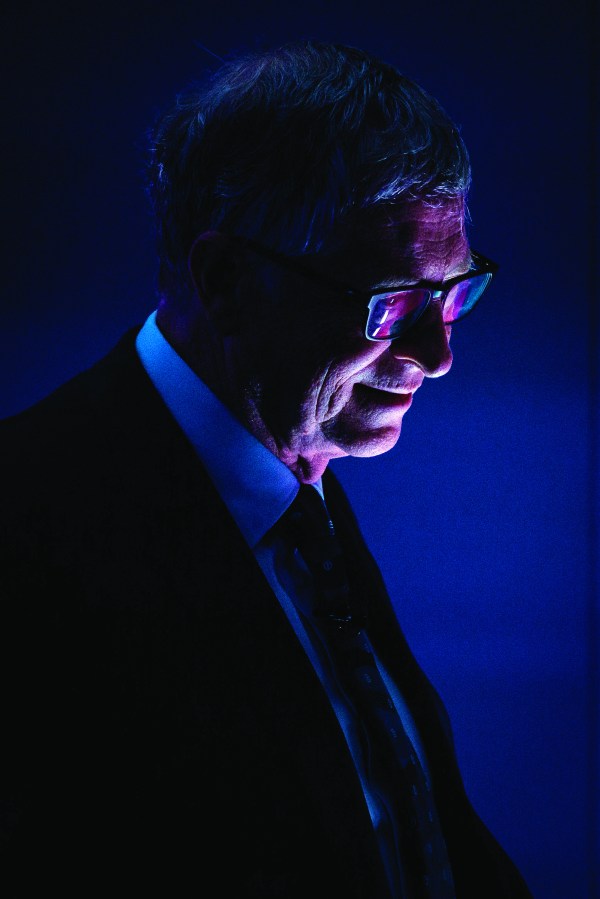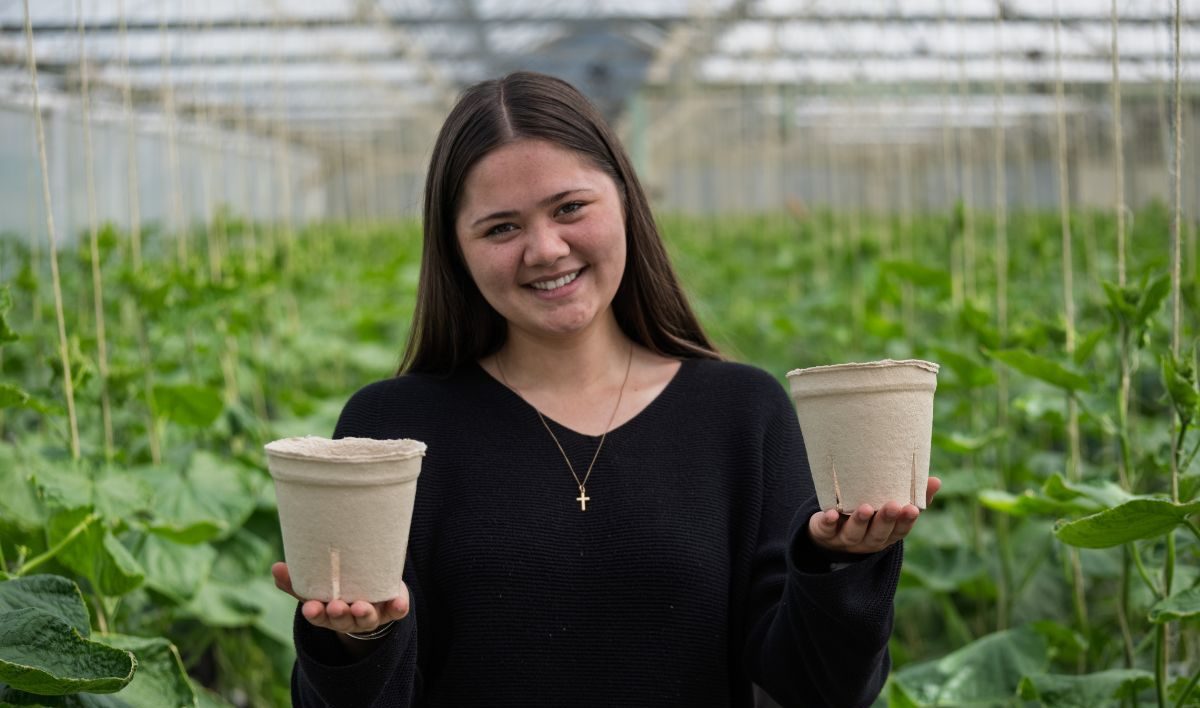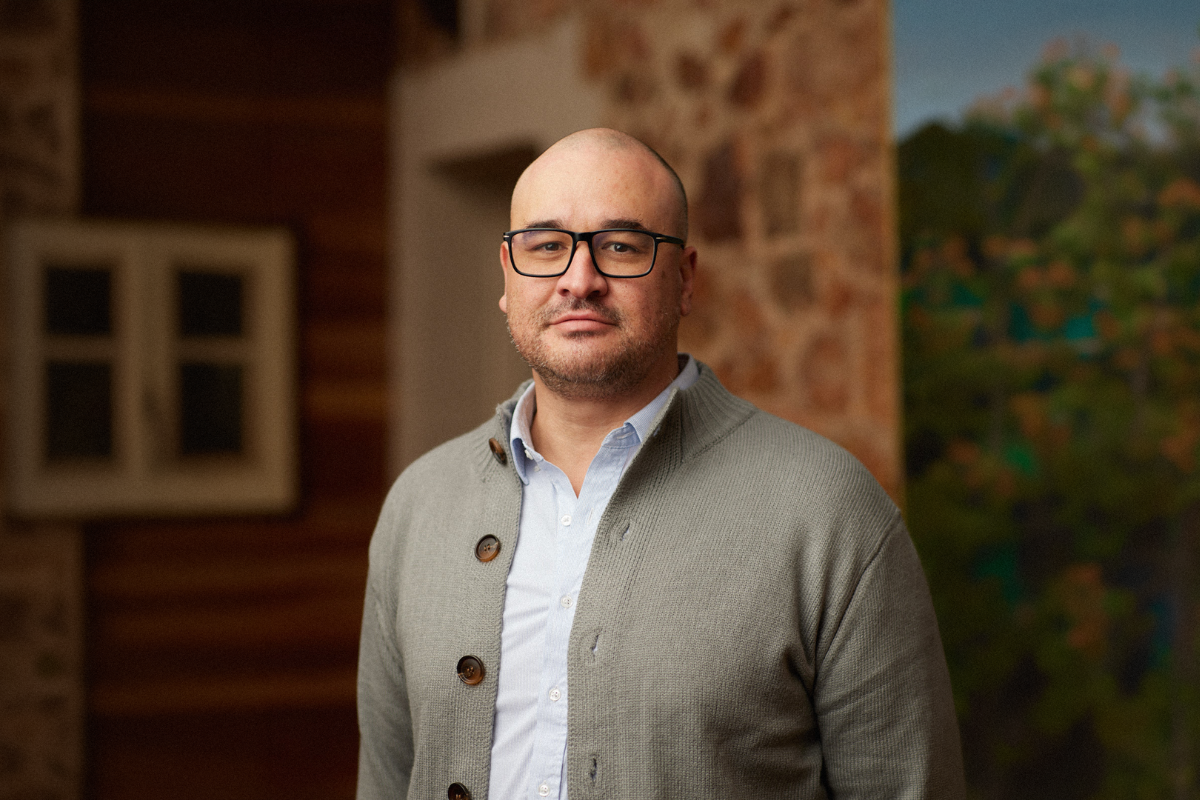Brothers Dimitry and Aengus Tran emigrated from Vietnam to Australia at just 14 and 22 respectively. Today, they are the co-founders of Harrison.ai, a medical technology company that aims to improve patient outcomes using artificial intelligence. In just three years, the pair have raised nearly $160 million and brought on major healthcare partners. But they say ultimately, the greatest honour is in caring for human beings.
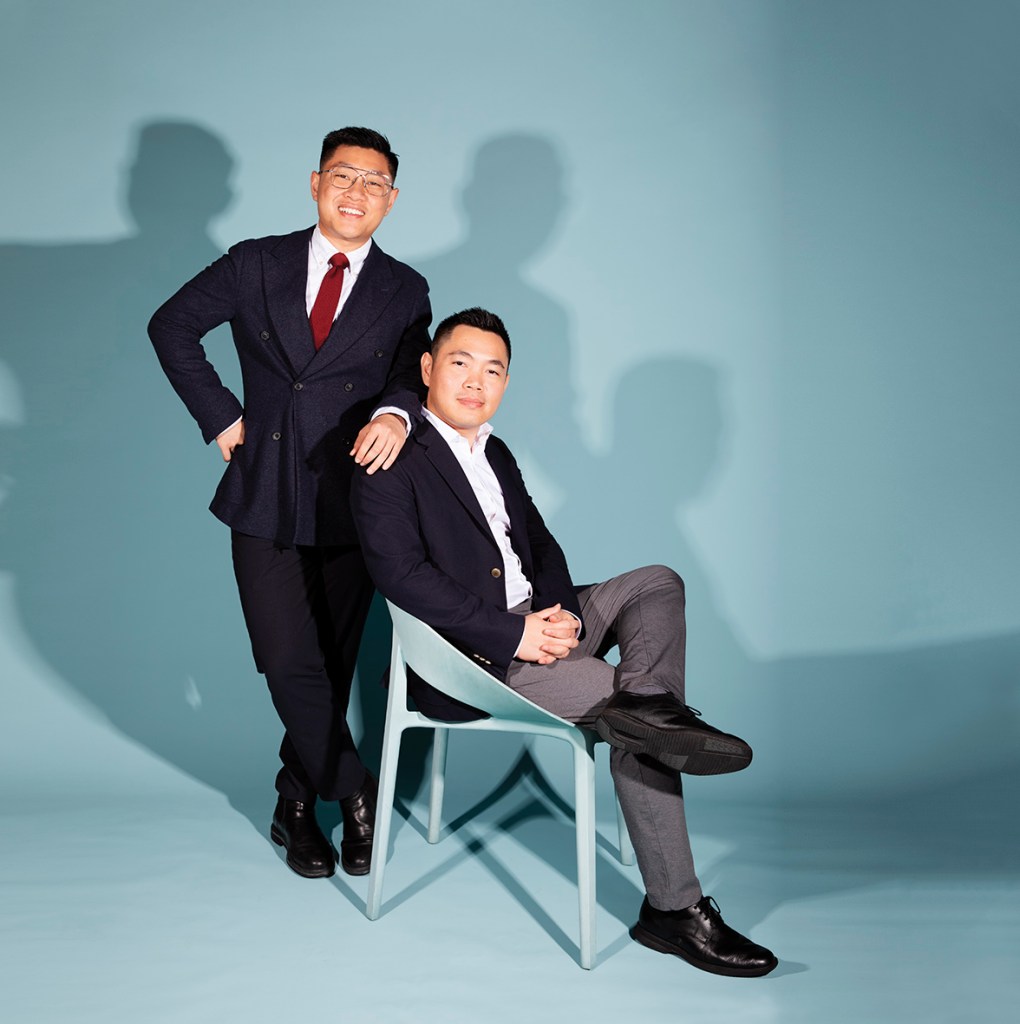
Dimitry Tran is in Chicago, attending the biggest medical conference in the world, the RSNA (Radiology Society of North America). He’s been on his feet 12 hours a day for the last three days and warns me he might lose his voice midway through our Zoom call. But that’s what happens when you’re one half of a breakthrough medical company.
Dimitry and his brother Aengus co-founded Harrison.ai in 2018 in Sydney, intending to create medical devices using artificial intelligence. In 2021, the company solidified its position in the medical industry with a $129 million capital injection. It was the largest Series B round in history for an Australian start-up. To Aengus, it represented a significant vote of confidence from the business’s investors, which include Horizon Ventures, Skip Capital and Blackbird. To date, the company has raised nearly $160 million.
“Our ambition is to impact a million lives per day by 2025. We’re already impacting a million lives per year, so we need to get that down to a million lives per month, then weekly, then daily. This is my personal KPI.”
– Dimitry Tran, co-founder of Harrison.ai
Alongside financial backers, the business has also gained strategic investors: I-MED Radiology Network and, more recently, the $20.5 billion pathology company, Sonic Healthcare.
The global healthcare services industry is estimated to be worth $8 trillion in 2023.
The company formed a joint venture in 2021 with I-MED Radiology to launch annalise.ai – a solution that helps radiologists identify chest and brain diseases and illnesses to improve patient outcomes. A year later, they formed another joint venture with Sonic Healthcare and launched franklin.ai to provide pathologists with AI tools to enhance diagnostic accuracy and efficiency.
“They [I-MED and Sonic] are bringing their clinical expertise to the table, ensuring that we are building clinically useful AI that fits into the existing workflow,” Aengus says.
“Our ambition is to impact a million lives per day by 2025. We’re already impacting a million lives per year, so we need to get that down to a million lives per month, then weekly, then daily. This is my personal KPI,” Dimitry adds.
Related
It is how Harrison.ai operates – it goes field to field, finding medical partners to build ventures that leverage its AI technology. Today, Aengus is CEO, Dimitry is chief business development officer, and the two plan to drastically revolutionise the healthcare industry.
“There are many ‘ologies’ in healthcare – cardiology, dermatology, ophthalmology… I joke that my kids can have any job, as long as it’s an ‘ology’. We think AI can make a large impact in many ‘ologies’. We’ve tackled radiology and pathology which is obvious because of the visual nature, but we believe there’s more to come in the Harrison story,” Dimitry says.
That story is just as interesting as the product – Dimitry and Aengus left their home in Ho Chi Minh City, Vietnam, and moved to Sydney in the early 2000s. Aengus was just 14, Dimitry was 22, and both had a passion for tech. Their father, a teacher in Vietnam, had one of the very first computers in the country. But both boys had a goal: to pursue medicine in Australia.
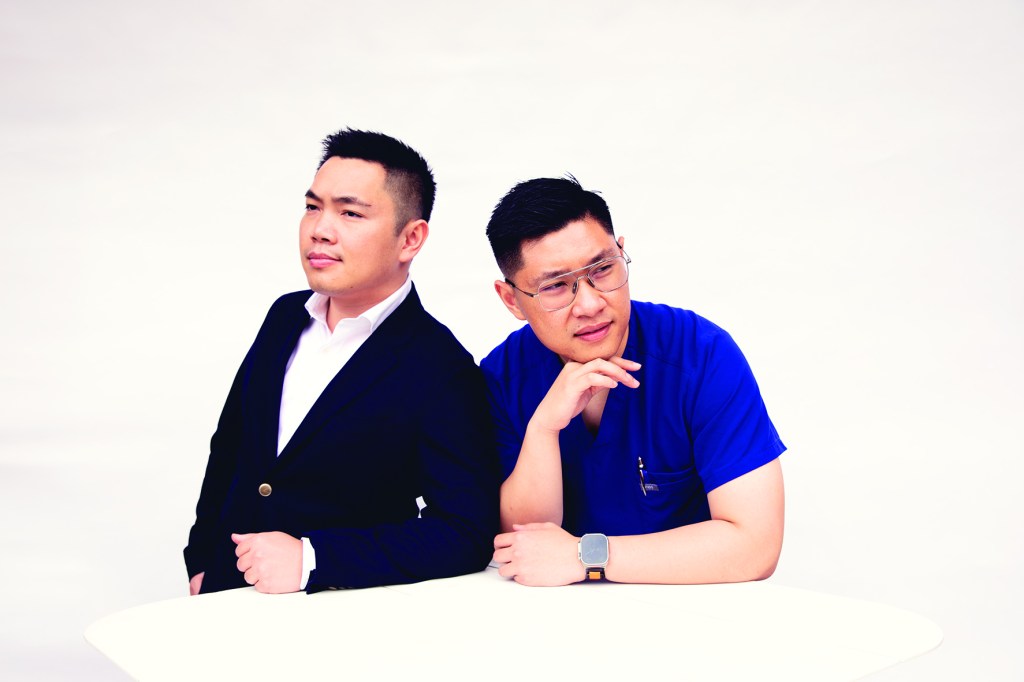
“Unfortunately, it’s costly for us as international students to do that. So, I ended up doing something more sensible – accounting and finance,” Dimitry says. “But the love of medicine did still draw me in.”
Dimitry graduated top of his class and was introduced to Paul Ramsey, the founder of Ramsey Healthcare, through the chancellor of his university. He joined Ramsay Healthcare, first as a strategy consultant and then as head of innovation.
When it came time for Aengus to go to university, Dimitry had the funds to put him through medical school, where he developed an AI to help select IVF embryos. This was when the brothers realised the power of AI in scaling healthcare solutions. And so Harrison.ai was born, with the business named after Dr Tinsley Harrison, who wrote Harrison’s Principles of Internal Medicine.
“Dr Harrison has inspired us,” he says. “I’m paraphrasing here, but he said something like, ‘There’s no greater honour in human life, and there’s also no greater responsibility than to care for another human being.’ And I think that’s the ethos of our company.”
The brothers say they’ve continued to receive strong inbound interest from investors globally.
“We’ll look at it as it comes,” Dimitry says. “We have a long way to go and many products to build, so another capital raise is on the cards – we’ll pick the right timing and investors in the next year.”
The growth of AI in healthcare
- The global healthcare IT market in terms of revenue was estimated to be worth US$394.6 billion in 2022, and $974.5 billion by 2027.
- The market, is being driven by e-prescribing, telehealth and remote patient monitoring solutions, is growing at a CAGR of 19.8% between 2022 and 2027.
- In 2021, the artificial intelligence (AI) in healthcare market was worth around US$11 billion worldwide. It is now projected to reach US$188 billion by 2030, growing at a CAGR of 37%.
- The growth in the AI market is being driven by a number of factors, including reducing the time healthcare professionals spend on administrative tasks.
- In 2020 in Europe, it was estimated a physician’s working time was split 50-50 between treating patients and administrative tasks.
- AI is expected to allow physicians to spend 17% more time with patients.
Big players in the worldwide AI healthcare market
- Google Health, which merged with DeepMind in 2019, and uses AI to help breast cancer screening, avert blindness and predict patient outcomes. Google’s AI solution out-performed all human radiologists by 11.5%.
- US-based Augmedix has developed a solution to extract data from patient-physician conversations and convert it to medical notes in real time.
- UK-based Babylon Health offers a patient-centred remote consultation services matches patients to a relevant physician 24/7 via video or voice call. The AI system can also provide users with personalised insights.
- US-based Butterfly Network uses a combination of semiconductors, AI and cloud tech to make remote medical imaging a reality.
